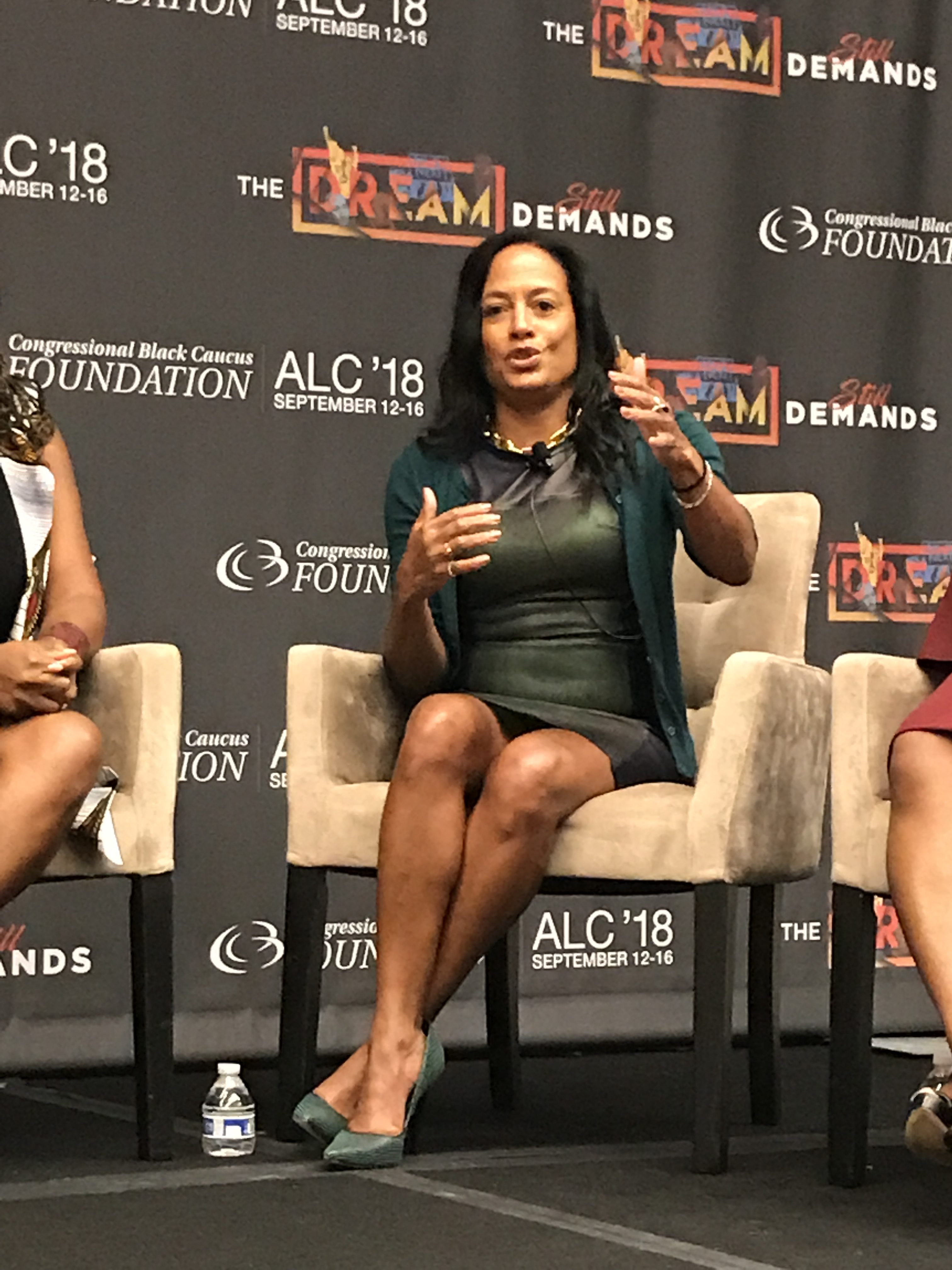WASHINGTON, D.C., (September 14, 2018)– Today, the Black Women’s Health Imperative (BWHI), released the first national policy agenda on Black women’s health priorities entitled, Black Women Vote: The 2018 National Health Policy Agenda (the Agenda), to ensure the health needs of Black women and girls are addressed at the federal and state levels during the 2018 and 2020 election cycles.

The Agenda, which has received endorsements from Planned Parenthood, In Our Own Voice, Healthy Women, National Coalition of 100 Black Women, Southern Christian Leadership Conference and The Links Inc., was released along with a report card on critical health policy priorities that impact women’s health. The report card offers voters an opportunity to assess federal and state candidates’ positions on health policies that impact the health of women of color.
The Agenda was released and discussed today during two panels at the Congressional Black Caucus Foundation Annual Legislative Conference (CBCF-ALC) Health Braintrust Townhall Meeting at the Walter E. Washington, Convention Center, Washington, DC., during the following sessions: U.S. Rep. Robin Kelly’s “CBCF Health Braintrust: Truth and Reconciliation in Health” panel and during U.S. Rep. Danny K. Davis’ CBCF-ALC Community Health Centers’ panel entitled “Breaking Down Barriers and Closing the Health Care Gap for Black Women.”
“We are excited to release this first-of-its-kind policy agenda, which offers our nation a framework for addressing health inequities for Black women and girls,” says Linda Goler Blount, Black Women’s Health Imperative’s president and CEO. “We want to provide voters with a way to assess candidates for office at all levels on issues that are important to Black women, such as ensuring access to quality healthcare and protecting an individual’s right to make personal decisions about reproductive health.”
“Over the years, Black Women’s Health Imperative has shown a remarkable ability to push forward on critical health issues by engaging our community in the policymaking process. With this report, they are once again leading the way and helping to inform our community about what’s at stake: literally our health and our lives,” said Congresswoman Robin Kelly, chair of the Congressional Black Caucus Health Braintrust.
“It is imperative that we do more to address growing health disparities for women of color. Doing so is a priority for me as U.S. Senator,” says Senator Doug Jones of Alabama. “I am committed to advancing policies that expand access to health care, reduce maternal mortality rates, and ensure that women of color have a voice in all of our federal health policy debates.”
“It’s been 50 years since Shirley Chisolm urged Black women not to wait for a seat at the table, but to bring our own folding chair. BWHI is continuing that civil rights legacy and educating our current and potential policymakers about the barriers Black women still face today,” says Tammy Boyd, Black Women’s Health Imperative’s Director of Policy and Legislative Affairs. “There is so much hindering Black women from gaining access to the affordable and quality health care they deserve, so it is up to us to not only be at the table but to lead it.”
“Black women deserve to have a leadership role at the table because their vote is essential and their health depends on it. It is our hope that Black women, our supporters, policymakers, and others will read the agenda and take action,” Linda Blount added. “The recommendations in this agenda will help stakeholders demand policies that are informed by the lived experiences of Black women. Come November, we should see a united front calling for meaningful investments in health research, programs and policies for Black women and girls.”
In an effort to educate and empower Black women voters, policymakers, and supporters around the country, BWHI will convene a series of ‘kitchen-table discussions’ starting in states such as Alabama, Florida, Georgia, Maryland, New York and Tennessee.
The policy agenda is available to the public for free on BWHI’s website at bwhi.org and includes a two-page, fill-in report card for voters to assess potential candidates’ policy positions.
To book an interview with a spokesperson from Black Women’s Health Imperative, please contact ajackson@bwhi.org.
###
The Black Women’s Health Imperative identifies the most pressing health issues that affect the nation’s 21 million Black women and girls and invest in the best of the best strategies, partners, and organizations that share our goal: ensuring Black women live longer, healthier, more prosperous lives. For more information, please call the Black Women’s Health Imperative at (202) 370-3630 or visit bwhi.org. Subscribe to receive the e-newsletter and follow the BWHI on social media using hashtag, #BlkWomensHealth for updates. Find us on Find us on Facebook (Black Women’s Health Imperative), Twitter (@BlkWomensHealth) YouTube (Black Women’s Health Imperative) and Instagram (@BlkWomensHealth).
Media Contact: Antonice Jackson | 202.370.3630 | ajackson@bwhi.org

